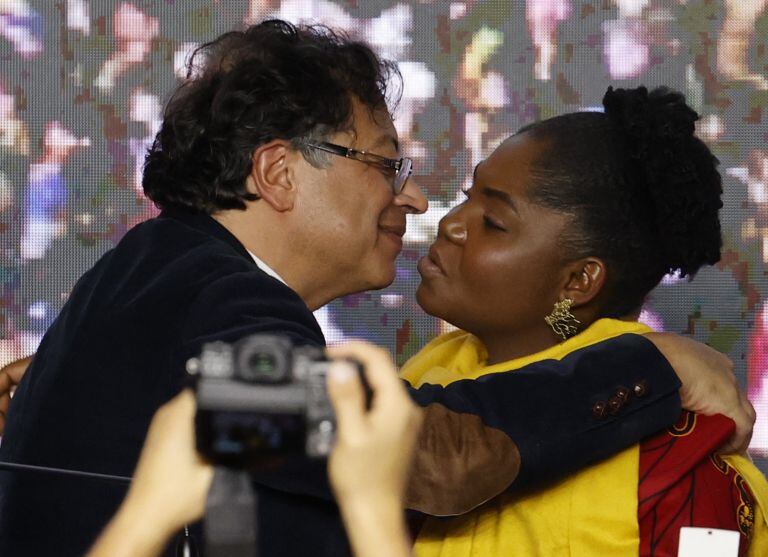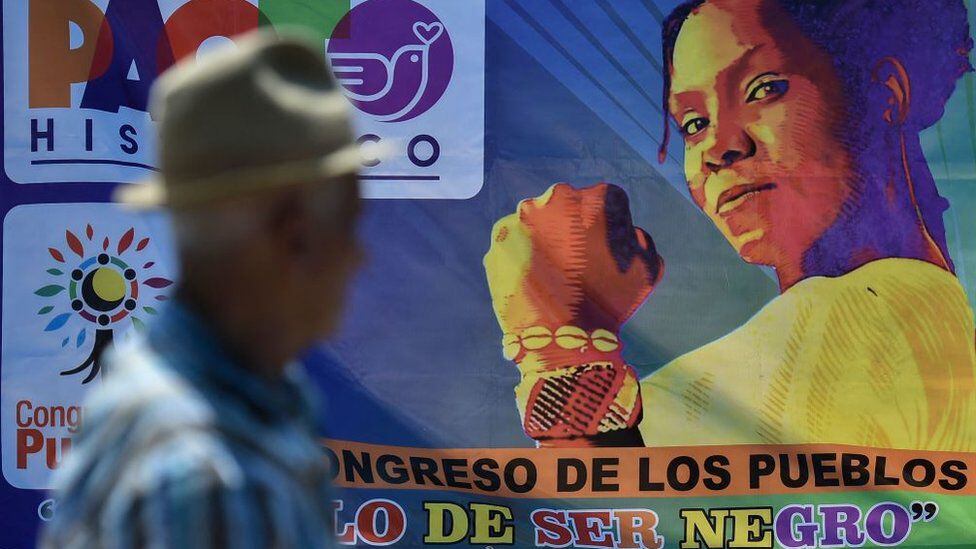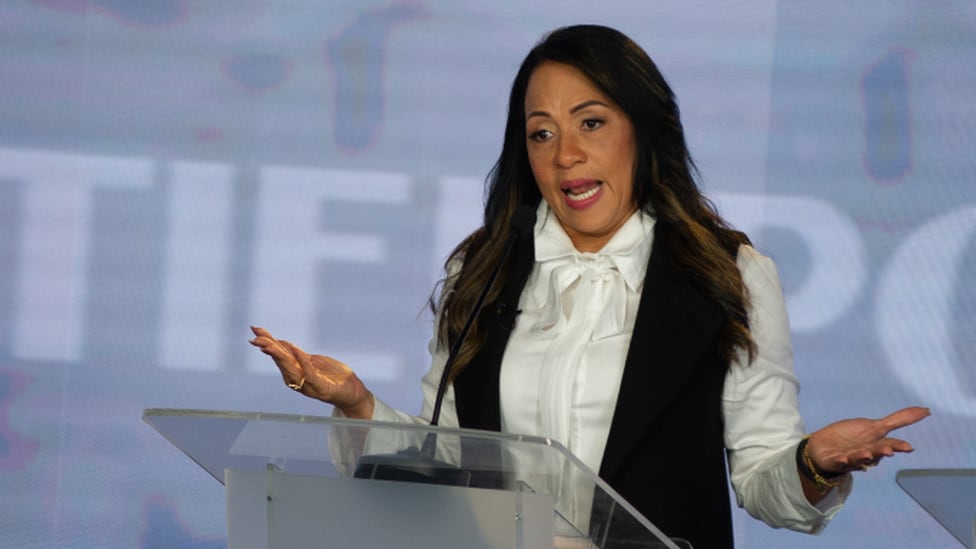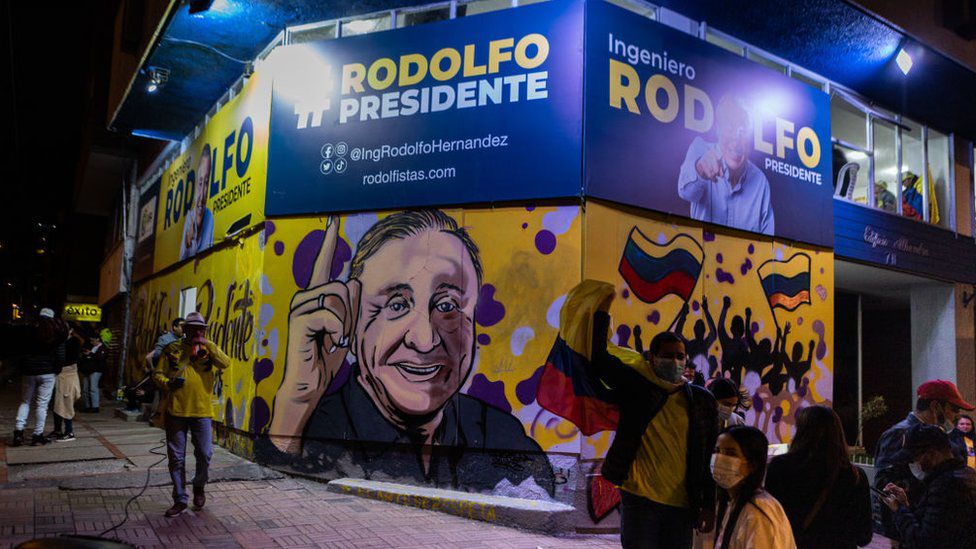Both Gustavo Petro and Rodolfo Hernández, the candidates for the presidency of Colombia, have been accused of being sexist.
It is not the only thing they have in common: both propose a drastic change in Colombian politics and represent a leadership very different from what Colombians are used to.
Look: What Petro and Hernández need to win the second round and be president of Colombia
Petro is blamed for his criticism of feminism and his patriarchal style of making decisions. Hernández is criticized for some apparently discriminatory and outdated comments.
The candidates have different positions on abortion, the role of women in politics and teenage pregnancy.
Petro even attacked Hernández for this issue on the Sunday of the first round of the elections: “Women to the house or women to power and freedom? You decide,” he tweeted.
Hernández, however, has qualified the intervention in which he supposedly said that women should not participate in politics, but rather stay at home. And he boasts that 70% of his cabinet in the Bucaramanga mayor’s office were women because “they have more moral reservations and are more hard-working.”
In any case, both candidates chose women as vice-presidential candidates.
Women with different profiles, but both Afro-descendants, with valuable careers outside the traditional political system and with a broad agenda on various issues.
Who are the women who are vying for the vice presidency of Colombia?
France Marquez

Francia Márquez was born 39 years ago in Suárez, Cauca, a municipality in southwestern Colombia hit by drug trafficking, illegal mining and the armed conflict.
started his environmental fight at 15 years old. His first major political battle was to oppose a project to divert the Ovejas River -crucial for the survival of thousands of indigenous and Afro-descendants in the region- to a dam.
The mobilization against the mining companies took effect and the project was cancelled. She later participated in other campaigns against what she calls “the extractive economy.” Her role earned her the Goldman Prize, known as the Nobel Prize for the Environment.
“(The mobilization) was the first time that I heard, being an Afro-descendant girl, that we had rights,” Márquez told the BBC in an interview in 2018.
“Collective rights to define in terms of what we wanted for our territory and what we wanted in terms of our development.”

This reading of the national territory, of the economy and of rights has been what Márquez, always dressed in the bright colors that connect with her Afro-Colombian ancestry, has injected into Petro’s campaign.
“France has achieved what has never been seen,” feminist writer Catalina Navas said on Twitter this week. “Women are going to vote first for his vice-presidential candidacy, and then, secondly, for his presidential ticket.”
Critics accuse Márquez of having received subsidies from the state when his criticism of state assistance is vehement. She has also been questioned for her vision of the socialist economy and for the use of inclusive language.
Thanks to the more than 8.5 million Colombian men and women who believe in Change for Life. Today we got a great victory and on June 19 we will make history.
Come on my Colombia we can, damn it! pic.twitter.com/Bv9I39CwWh– Francia Márquez Mina (@FranciaMarquezM) May 30, 2022
She has called the criticism “attempts to trample on her name”. She defends her feminist positions and sent “an ancestral hug” to the famous singer who dedicated a racist comment to her.
marelen castle

Marelen Castillo Torres was born 57 years ago in Cali, the country’s third largest city, near the Pacific coast.
The oldest of five sisters, Castillo spent her childhood in a middle-class neighborhood north of Cali. Her mother is an Afro dressmaker from Buenaventura, the capital of the Pacific coast, and her father is a public official.
Castillo’s life has developed on that thin border between education and religion. He studied at a Catholic school and his last job before entering politics was at a Catholic university.
With a degree in biology and chemistry from the Santiago de Cali University, she was a teacher at her old school for 11 years. She also studied industrial engineering at the Universidad Autónoma de Occidente, administration at the Instituto Tecnológico y de Estudios Superiores de Monterrey and has a doctorate in education at Nova Southeastern University, in Florida, United States.
With my vice ???????????????????? @CastilloMarelen #Happy Thursday to everyone pic.twitter.com/nH0JTsjlgS
— Ing Rodolfo Hernandez ????????! (@ingrodolfohdez) March 31, 2022
In 2007, he moved to Bogotá and joined the Minuto de Dios University Corporation, Uniminuto, a prestigious Catholic entity. She had various positions there until she became vice-chancellor. Her great project was to connect the university with foreign institutions and design sophisticated distance education programs, today her specialty.
Castillo arrived at Hernández’s campaign without knowing the candidate. She applied with her resume and was chosen by the campaign because she represents that ordinary Colombian, thriving, hard-working and successful, that Hernández seeks to represent and bring to the Casa de Nariño.
“We need an educated country that finds other life options, some training routes that generate employment, entrepreneurship, and that generate other opportunities for all those who are committing crimes to have a decent quality of life,” Murillo said in a debate in Semana .
And about Hernández’s allegedly sexist statements, he assured W radio on Monday: “The video is taken out of context of what he wanted to express. In the campaign we are many women who contribute (…) He is a very respectful man , is a serious and calm man, and respects the work that we women do”

The differences between Castillo and Márquez are great: one is urban and the other rural; one is from the right and the other from the left. Both are Afro-descendants, but they do not give the theme the same symbology or significance.
The two, in any case, are women who represent an unprecedented change for Colombia. But they are different changes. And that is, in the end, what will end up defining the presidency.
Source: Elcomercio

:quality(75)/cloudfront-us-east-1.images.arcpublishing.com/elcomercio/GIZDAMBNGA2S2MZRKQYDAORSGI.png)

:quality(75)/cloudfront-us-east-1.images.arcpublishing.com/elcomercio/7UP36SD2RFFVXP6J2Q274SPQNE.jpg)
:quality(75)/cloudfront-us-east-1.images.arcpublishing.com/elcomercio/VNKVF3HCAJCZTCBTQGMOOLZNM4.jpg)
:quality(75)/cloudfront-us-east-1.images.arcpublishing.com/elcomercio/J6VYSYWV3BHRJDGU6JRF3MH4YY.jpg)
:quality(75)/cloudfront-us-east-1.images.arcpublishing.com/elcomercio/UCZ4YPC47RDURN5O63M6BJFQWA.jpg)
